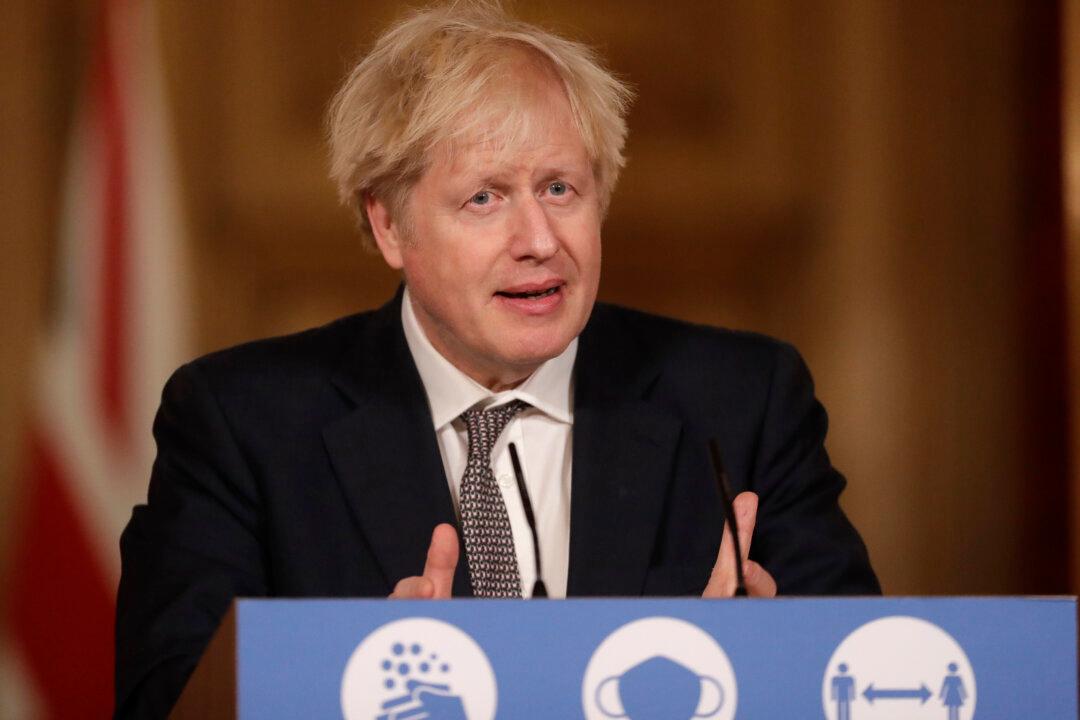British Prime Minister Boris Johnson and U.S. President Joe Biden discussed the need for coordination on China and other foreign policy priorities in a phone call on Saturday.
The leaders discussed “the need for coordination on shared foreign policy priorities, including China, Iran, and Russia,” the White House said in a statement. Biden “conveyed his intention to strengthen the special relationship between our countries and revitalize transatlantic ties, underscoring the critical role of NATO to our collective defense and shared values.”





